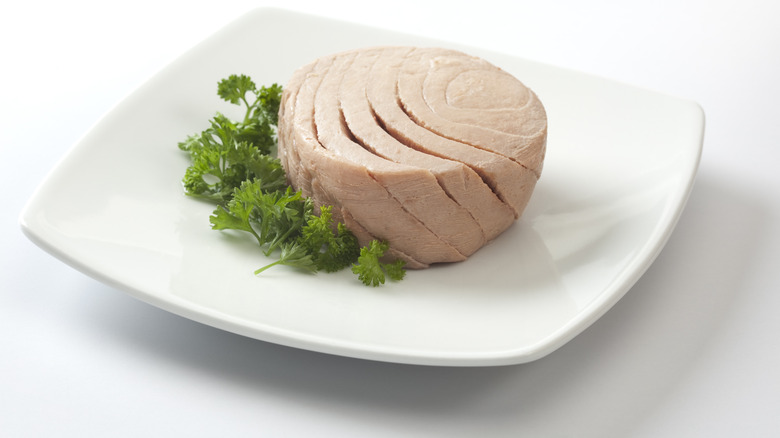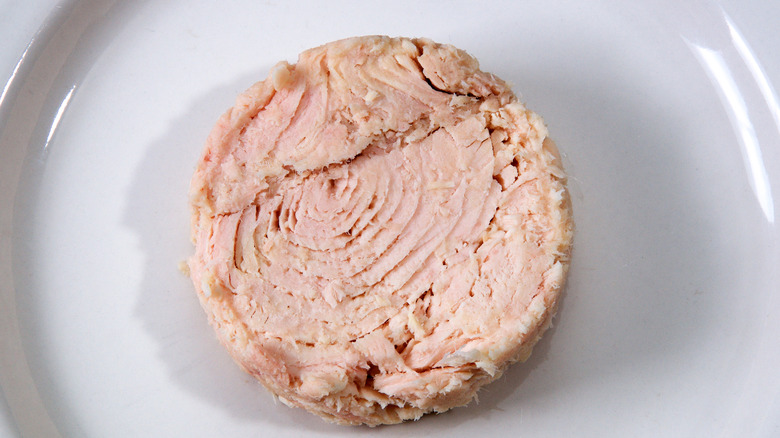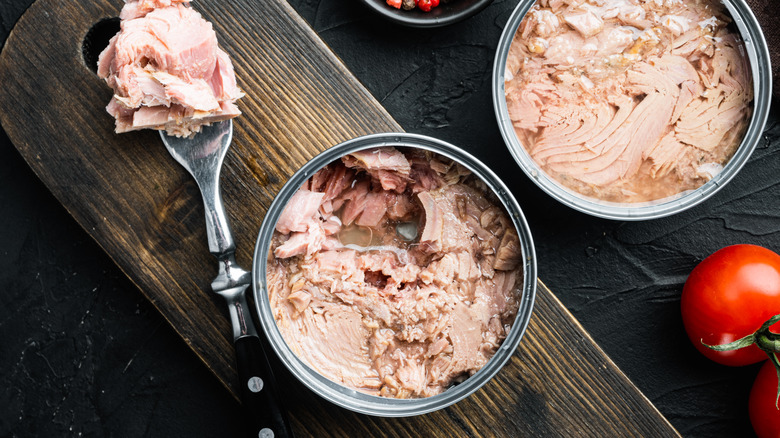The Real Difference Between Solid And Chunk Tuna
Choosing your preferred canned tuna at the supermarket might seem pretty straightforward. All you'd need to think about is whether you want albacore or skipjack, whether it should be packed in oil or water, or what flavor options you want, such as zesty lemon pepper, fiery spicy Thai chili, or tangy ranch.
But let's dive beneath the surface and unravel the tantalizing mystery that keeps seafood aficionados in a frenzy: the real difference between solid and chunk tuna. So, what sets these two oceanic powerhouses apart? It's all about texture. Solid tuna exudes an unwavering strength, with flakes that hold their ground, while chunk tuna dances lightly on the palate, teasing taste buds with its effortless tenderness.
From a nutritional perspective, every variety of canned tuna provides a valuable source of essential nutrients like lean protein, omega-3 fatty acids, and selenium. The key to unlocking the full potential of your canned tuna is deciphering which of these pantry staples perfectly complements your recipes.
Solid tuna has firmer, meatier chunks
As the name suggests, solid tuna consists of larger, firmer pieces of fish, which are pre-cooked and packed tightly into the can. This is because solid tuna is pulled from the loin of large tuna, such as the enormous white albacore, where it's easier to extract chunkier filet layers that can withstand the precooking process.
Showcasing a paler flesh tone, typically observed in the magnificent large albacore tuna, this delectable tuna variant offers a more substantial and meaty texture, making it a perfect choice for those who enjoy a heartier bite. Each morsel retains its shape, offering a satisfying mouthfeel that excels when enjoyed alone or incorporated into various tuna-based recipes that call for distinct tuna chunks. Solid tuna is an exquisite choice when you want to create beautiful tuna steaks or fish tacos, and its firm, meaty chunks could make any salad swoon.
Chunk tuna comes in various tinier forms
Chunk tuna may include a standalone or a combination of smaller tuna species, predominantly skipjack or albacore, while occasionally featuring yellowfin or big-eye varieties. While solid white albacore offers large tuna pieces, chunk white albacore has smaller chunks but with the same white color, mild flavor, and firm texture. Then again, chunk light tuna tend to have a darker color, rich flavors, and flakier pieces.
Chunk tuna's lighter and more delicate filets do not retain their structural integrity as effectively as solid tuna during precooking. The more flaky and tender fish pieces bring forth a playful medley of bite-sized morsels, perfect for a tuna melt or recipes where a smoother texture is preferred. The smaller chunks easily break apart, making them a versatile option for salads, sandwiches, pasta, and other light dishes. If you're big on quick, on-the-go meals, you'll appreciate the convenience and ease of use of chunk tuna. Plus, it's budget-friendly, so you don't have to break the bank.


